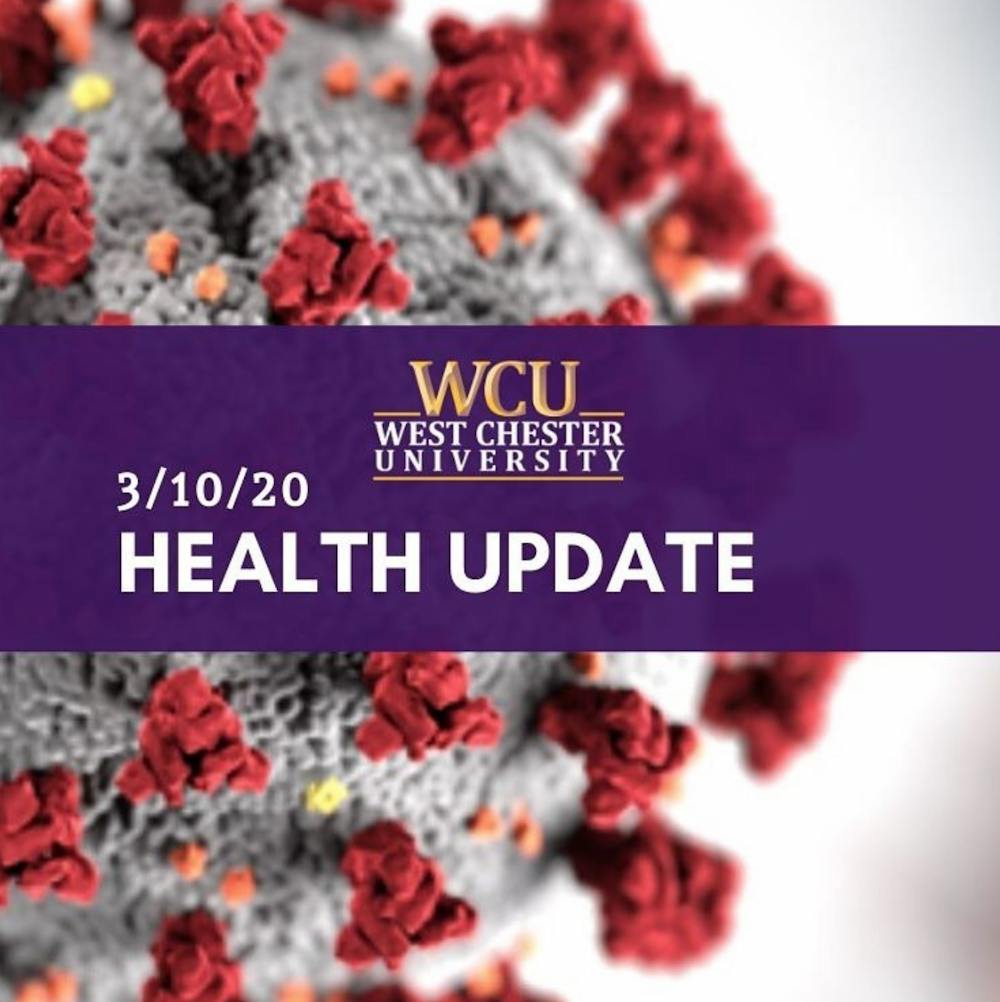The spread of coronavirus (COVID-19) has prompted West Chester University to move to “alternative modes of instruction.”
University officials announced Tuesday that it will move course instruction online for the remainder of the spring semester as coronavirus cases increase in the greater Philadelphia area.
It is the first Pennsylvania State System of Higher Education (PASSHE) school to do so.
Christopher Fiorentino, West Chester University president, explained the action in an email to campus community members.
“Out of an abundance of concern for the continued good health of our community, the University has made the decision to move to alternate modes of instruction for the remainder of the spring semester,” Fiorentino wrote.
Classes will resume March 30, but faculty and students will not meet face to face, according to the email. Fiorentino said faculty will use the next two weeks to prepare for online instruction.
The university will contact each student for a scheduled time to collect items from their residence halls and South Campus apartments, according to Fiorentino.
At Shippensburg University, WCU’s PASSHE sister school, officials are continuing to monitor the situation.
“We are considering all options that are in the best interest of our Shippensburg University community,” SU President Laurie Carter said.
“This is a fluid situation, and every university in the state system is making decisions based on what is best for their communities,” said Kim Garris, SU vice president of external relations and communications.
Garris said the university is following Centers for Disease Control and Prevention and Pennsylvania Department of Health guidance. SU will provide updates online at ship.edu/coronavirus/.
PASSHE Chancellor Daniel Greenstein and Kenneth Mash, faculty union president, offered guidance to faculty via email Tuesday.
“Our collaborative nature is also our strength as we work together to provide a high-quality educational experience for our students while safeguarding their health, safety and welfare,” they wrote.
Greenstein and Mash emphasized their commitment to students while continuing to meet academic requirements and course objectives. They also recommended that all internships, clinicals and student teaching placements continue unless the host organization changes operations, according to the email.
If students cannot continue those activities, universities will seek to provide alternatives that meet course objectives by the end of the semester or as soon as possible.
Greenstein and Mash encouraged campus community members to “embrace…patience, flexibility and agility” in the coming weeks.




The Slate welcomes thoughtful discussion on all of our stories, but please keep comments civil and on-topic. Read our full guidelines here.